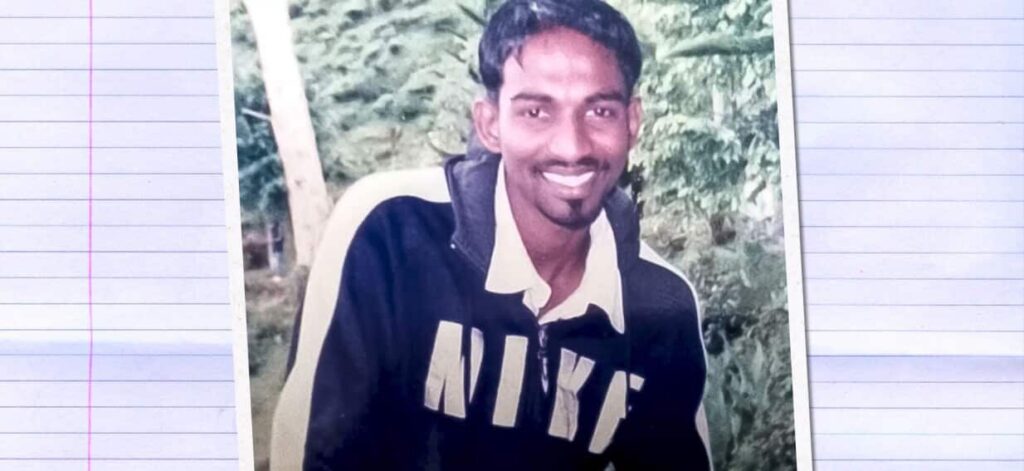
On October 8, 2025, Singapore executed Pannir Selvam Pranthaman, a 37-year-old man convicted of drug trafficking, following a lengthy legal battle and widespread activism against his death sentence. Pannir was sentenced to death in May 2017 after being found with 51 grams of pure heroin at a border checkpoint between Singapore and Malaysia. Despite being a first-time offender, his conviction highlighted the country’s stringent laws regarding drug-related offenses.
Pannir’s case drew significant attention both locally and internationally, with his family and various human rights organizations advocating for clemency. His sisters, Sangkari and Angel Pranthaman, frequently traveled from Malaysia to Singapore to visit him. In 2024, Sangkari expressed her concerns about the severity of Singapore’s drug laws, stating, “I feel Singapore is being too strict when it comes to drug-related issues. They need to give a second chance to first-time committers.” Both sisters believed that the punishment did not fit the crime, urging the government to focus on major drug traffickers rather than individuals like Pannir.
For over eight years, activists, including journalist and advocate Kirsten Han, campaigned tirelessly for Pannir’s life. They engaged in lobbying efforts, media outreach, and collaborations with non-governmental organizations. Han emphasized that Pannir’s family worked “incredibly hard” to seek justice, yet their efforts culminated in his execution, marking the twelfth execution in Singapore that year.
The execution sparked further debates about the use of the death penalty in Singapore. Since Pannir’s death, two more executions have been carried out, including one involving the only woman on death row. According to a spokesperson for the Central Narcotics Bureau, there have been 14 executions in Singapore in 2025 alone, continuing a trend in which over 400 individuals have been executed in the past two decades primarily for drug offenses.
Singapore’s strict drug laws stipulate the death penalty for possession of over 15 grams of heroin and other significant quantities of various drugs. While courts may sometimes impose life sentences under specific circumstances, including the provision of substantial assistance to authorities, Pannir’s appeals for clemency were denied. In 2019, he sought judicial review, but his case was dismissed by the court of appeal.
The international community has reacted to Pannir’s execution, with organizations like Amnesty International and the United Nations calling for a reevaluation of the death penalty’s application, particularly for drug-related offenses. Chiara Sangiorgio, a death penalty advisor for Amnesty International, noted, “Pannir’s case is emblematic of the many flaws in the use of the death penalty in Singapore. Under international law, imposing the death penalty for drug offenses as a mandatory punishment is unlawful.”
In contrast, Singapore continues to assert that its capital punishment laws serve as a deterrent against drug trafficking, particularly given its geographical proximity to the Golden Triangle, a region notorious for drug production. Anil Nayar, Singapore’s High Commissioner to Australia, defended the country’s approach, stating, “The quantities may be small, but the impact is not.” He emphasized that public sentiment largely supports the death penalty as an effective deterrent.
Despite the government’s stance, activists argue that the public support for capital punishment is influenced by limited media freedom and a lack of critical perspectives in the public discourse. With Singapore ranked 123 out of 180 countries in terms of press freedom, voices opposing the death penalty struggle to gain traction. Han highlighted, “Critical perspectives on the death penalty don’t make it into the mainstream media.”
Pannir Selvam Pranthaman’s story resonates beyond his conviction. His poetry, including the collection titled “You Die from Within,” reflects his experiences on death row and his desire for understanding and change. Han noted that Pannir had a handwritten manuscript for a second poetry collection, which he hoped to publish before his execution.
The anxiety surrounding executions in Singapore remains palpable, as death row inmates are aware of their place in the “queue” for execution. Activists like Han express concern over the increasing number of executions in 2025, fearing that more lives will be lost to the death penalty.
In Pannir’s poem, he poignantly questions the moral implications of capital punishment: “Why do they preach, lives are precious / But aren’t prepared to give the fallen a second chance?” His story and the ongoing debate about the death penalty in Singapore highlight the complex interplay of justice, human rights, and societal values in the face of drug-related crimes.







